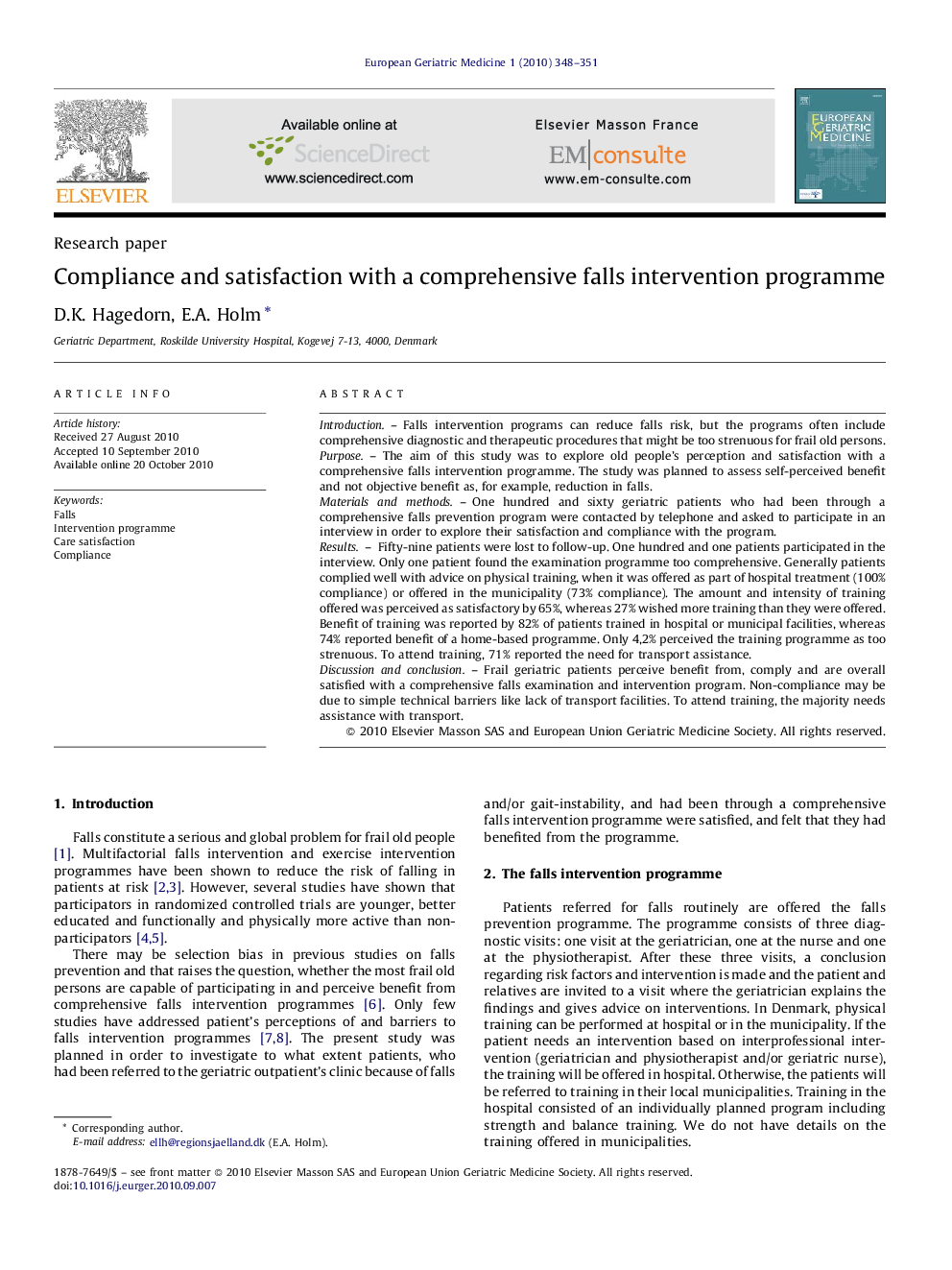| Article ID | Journal | Published Year | Pages | File Type |
|---|---|---|---|---|
| 3325018 | European Geriatric Medicine | 2010 | 4 Pages |
IntroductionFalls intervention programs can reduce falls risk, but the programs often include comprehensive diagnostic and therapeutic procedures that might be too strenuous for frail old persons.PurposeThe aim of this study was to explore old people's perception and satisfaction with a comprehensive falls intervention programme. The study was planned to assess self-perceived benefit and not objective benefit as, for example, reduction in falls.Materials and methodsOne hundred and sixty geriatric patients who had been through a comprehensive falls prevention program were contacted by telephone and asked to participate in an interview in order to explore their satisfaction and compliance with the program.ResultsFifty-nine patients were lost to follow-up. One hundred and one patients participated in the interview. Only one patient found the examination programme too comprehensive. Generally patients complied well with advice on physical training, when it was offered as part of hospital treatment (100% compliance) or offered in the municipality (73% compliance). The amount and intensity of training offered was perceived as satisfactory by 65%, whereas 27% wished more training than they were offered. Benefit of training was reported by 82% of patients trained in hospital or municipal facilities, whereas 74% reported benefit of a home-based programme. Only 4,2% perceived the training programme as too strenuous. To attend training, 71% reported the need for transport assistance.Discussion and conclusionFrail geriatric patients perceive benefit from, comply and are overall satisfied with a comprehensive falls examination and intervention program. Non-compliance may be due to simple technical barriers like lack of transport facilities. To attend training, the majority needs assistance with transport.
